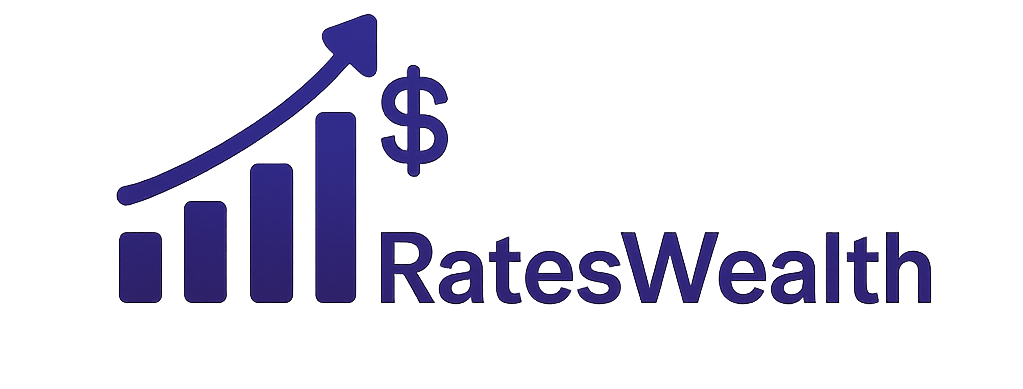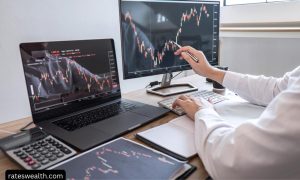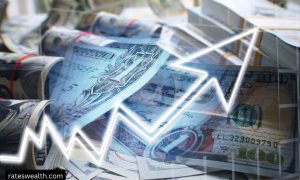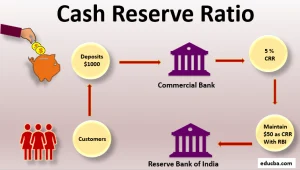The forex market beckons with potential for those willing to learn its ways. Many dream of financial freedom through currency trading but face a steep learning curve. This guide will walk you through the essentials of forex trading. You’ll discover what the market is and how it works. We’ll cover practical steps to start trading wisely. The journey isn’t easy, but with patience and discipline, it’s possible to succeed. Let’s break down this complex world into manageable pieces.
What Is the Forex Market?
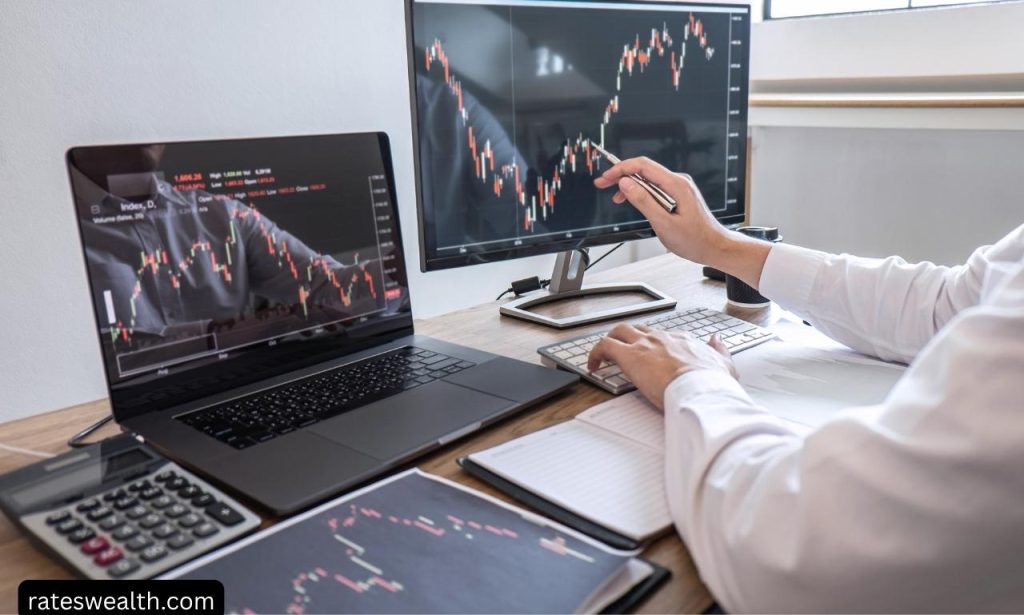
The forex market is where currencies are bought and sold against each other. It’s the largest financial market in the world by trading volume, and trillions of dollars change hands daily in this global marketplace. Unlike stock markets, forex has no central exchange or physical location. The market operates through a network of banks, institutions, and brokers. These players connect buyers and sellers across time zones worldwide.
Currency values shift based on economic data, political events, and market sentiment. These constant fluctuations create opportunities for traders to profit. The forex market operates 24 hours a day, five days a week. This accessibility makes it attractive to many traders globally. You can trade whenever it fits your schedule, regardless of time zone.
How Does the Forex Market Work?
Where Is It?
The forex market exists as an electronic network rather than a physical place. Major financial centers like London, New York, and Tokyo form its backbone. These hubs pass trading activity between them as time zones shift. Banks form the core of this network through the interbank market. They trade enormous volumes directly with each other every day.
Retail traders like you access this market through online brokers. Your broker connects you to the broader network of liquidity providers. This decentralized structure means no single entity controls the entire market. Prices are determined by the combined actions of millions of participants. The market’s global nature means it responds to events happening anywhere in the world.
Who Trades on It?
Central banks participate in forex to manage monetary policy. Commercial banks make up the interbank market where most trading occurs. Investment firms manage currency positions for large portfolios. Multinational corporations exchange currencies for international business operations. Hedge funds seek profits through complex trading strategies.
Individual traders, often called retail traders, make up a growing segment. They range from part-time hobbyists to dedicated full-time traders. Some use automated systems while others rely on personal analysis. Proprietary trading firms deploy specialized teams with substantial capital. Many participants also include money managers handling client funds. Each player brings different goals and timeframes to the market.
What Is Forex Trading?
Forex trading involves buying one currency while selling another simultaneously. All trades happen in pairs, like EUR/USD or GBP/JPY. The first currency listed is the base, the second is the quote currency. When you buy EUR/USD, you’re buying euros while selling dollars.
Traders aim to profit from changes in exchange rates between currencies. If you buy euros at 1.10 dollars and sell at 1.12, you’ve made a profit. The difference may seem small, but leverage can magnify these moves. Position sizes determine how much currency you control with your capital. Most retail trading happens in the spot market for immediate delivery.
How To Make Money Forex Trading
Making money in forex requires understanding price movements and managing risk. Successful traders develop clear strategies based on market analysis. Technical analysis uses charts to identify potential price patterns. Fundamental analysis examines economic factors affecting currency values.
Risk management is possibly more important than prediction accuracy. Professional traders never risk more than a small percentage on any trade. They use stop-loss orders to limit potential losses automatically. Taking profits at predetermined levels helps lock in gains. Consistency matters more than occasional big wins in long-term success.
Traders must also master their psychology to avoid emotional decisions. Fear and greed can sabotage even the best trading plans. Keeping a trading journal helps identify strengths and weaknesses over time. Patience allows good setups to develop instead of forcing trades. The most successful traders understand that preserving capital enables future opportunities.
How To Start Trading Forex
Starting forex trading requires several practical steps and careful preparation. First, educate yourself thoroughly about how the market works. Read books, take courses, and practice with demo accounts before risking money. Choose a reputable broker regulated in a major jurisdiction. Consider factors like trading costs, platform features, and customer support.
Open a small account to begin—many brokers offer micro accounts. This allows trading with minimal capital while learning. Develop a simple trading plan with clear rules for entries and exits. Focus on one or two major currency pairs until you gain experience. Set aside dedicated time for market analysis and trading activities.
Create a trading journal to track all decisions and outcomes. This record becomes invaluable for improving your approach. Join trading communities to learn from others’ experiences and insights. Remember that consistency takes precedence over seeking quick profits. Treat trading as a business rather than a game or gambling activity.
Why Forex Is Hard to Trade
Market volatility and speed
The forex market can change direction in seconds after news releases. Price moves often happen faster than humans can react manually. Volatility can trigger stop orders before prices resume their original trend. This whipsaw effect frustrates many traders new to the market.
Major economic announcements can cause dramatic price swings. Currency values might jump or plummet based on a single data point. Trading during these volatile periods requires special techniques. Many beginners underestimate how quickly markets can move against positions. Such rapid changes demand robust risk management systems and mental preparation.
Leverage amplifies losses and gains
Leverage allows controlling large positions with relatively small deposits. Many brokers offer leverage ratios of 50:1, 100:1, or even higher. This magnification works both ways, amplifying profits and losses equally. A small market move can wipe out an account with excessive leverage.
New traders often use maximum leverage without understanding the risks. They focus on potential gains while ignoring the probability of losses. Proper position sizing becomes even more critical when using leverage. Survival in the market frequently depends on conservative leverage use. Professional traders typically use much lower leverage than what’s available.
Market complexity
The forex market responds to countless variables simultaneously. Interest rates, inflation data, and employment figures all influence currencies. Geopolitical events can trigger sudden market reactions without warning. Global economic relationships create complex cause-and-effect chains.
Central bank policies often drive long-term currency trends. Understanding these policies requires deep economic knowledge. Technical indicators sometimes give conflicting signals about market direction. Price action frequently defies logical expectations based on news alone. This multi-dimensional complexity challenges even experienced analysts.
Psychological challenges
Trading triggers powerful emotions that can override rational decision-making. Fear causes hesitation when executing planned trades. Greed tempts traders to hold positions too long, giving back profits. Revenge trading after losses often leads to even bigger losses.
Maintaining discipline during drawdown periods tests mental fortitude. The solitary nature of trading can amplify negative thought patterns. Market participation requires managing these psychological pressures daily. Few new traders appreciate the mental demands of consistent performance. Developing emotional control often takes longer than learning technical skills.
Institutional disadvantage
Retail traders compete against institutions with superior resources and information. Banks can see order flow data unavailable to individual traders. Large players sometimes move markets in ways that trigger retail stop orders. Institutional desks employ teams of specialists and advanced algorithms.
News reaches professional trading floors before public distribution channels. The playing field isn’t level, despite electronic market access. Individual traders must acknowledge and adapt to these disadvantages. Success requires finding edges within a retail trader’s capabilities. This often means avoiding direct competition with institutions.
Transaction costs
Spreads and commissions slowly erode trading capital over numerous transactions. These costs make many theoretically profitable strategies unprofitable in practice. High-frequency strategies face greater impact from transaction costs. The broker’s spread represents an immediate loss on every new position.
Overnight swap rates can significantly affect longer-term positions. Currency pairs with wide spreads demand more price movement for profitability. Transaction costs must be factored into any trading plan’s expectations. Many beginners ignore these costs when back-testing strategies. Successful trading requires minimizing costs while maximizing potential returns.
Conclusion
Starting forex trading requires education, preparation, and realistic expectations. The market offers accessibility but demands respect for its challenges. Begin with thorough learning rather than rushing to trade real money. Practice with demo accounts until consistently profitable over months, not days.
When ready, start with minimal risk while continuing to develop skills. Understand that success comes from process quality, not individual trades. The journey requires patience and psychological resilience above all else. With disciplined risk management and continuous improvement, forex trading can be rewarding. Remember that preservation of capital always takes priority over aggressive growth.
Also Read: How To Compound Your Trading Returns And Make Big Money
FAQs
You can start with as little as $100 with some brokers offering micro accounts.
Yes, it’s legal in most countries, but regulations vary by jurisdiction.
Yes, many successful traders operate part-time, focusing on specific sessions.
EUR/USD offers good liquidity and moderate volatility, making it suitable for newcomers.
